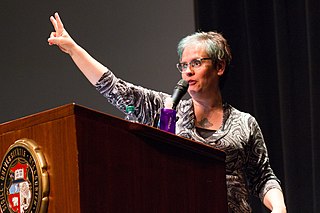A Quote by Ariel Dorfman
Torture presupposes, it requires, it craves the abrogation of our capacity to imagine others suffering, dehumanizing them so much that their pain is not our pain. It demands this of the torturer, placing the victim outside and beyond any form of compassion or empathy, but also demands of everyone else the same distancing, the same numbness.
Related Quotes
To the extent that our experience of suffering reminds us of what everyone else also endures, it serves as a powerful inspiration to practice compassion and avoid causing others pain. And to the extent that suffering awakens our empathy and causes us to connect with others, it serves as the basis of compassion and love.
Solidarity does not assume that our struggles are the same struggles, or that our pain is the same pain, or that our hope is for the same future. Solidarity involves commitment, and work, as well as the recognition that even if we do not have the same feelings, or the same lives, or the same bodies, we do live on common ground.
In contrast, compassion manifests in us as the offering of kindness rather than withdrawal. Because compassion is a state of mind that is itself open, abundant and inclusive, it allows us to meet pain more directly. With direct seeing, we know that we are not alone in our suffering and that no one need feel alone when in pain. Seeing our oneness is the beginning of compassion, and it allows us to reach beyond aversion and separation.
In my opinion, everybody has the same soul from God and we are united by that. Outside, our bodies are different, our faces are different, but inside we are all the same, we share the same feelings of sadness, love, pain My music comes out of these feelings. Whether it is Japanese music, African, Qawalli, or any other form of music, if it touches your heart it becomes important for me.
Compassion allows us to use our own pain and the pain of others as a vehicle for connection. This is a delicate and profound path. We may be adverse to seeing our own suffering because it tends to ignite a blaze of self-blame and regret. And we may be adverse to seeing suffering in others because we find it unbearable or distasteful, or we find it threatening to our own happiness. All of these possible reactions to the suffering in the word make us want to turn away from life.
Reality is a harsh mistress. She demands our honesty. She demands our work. She demands that we give up comforts, that we let ourselves feel pain, that we accept how small we are and how little control we have over our lives. And she demands that we make her our top priority. But she is more beautiful, and more powerful, and more surprising, and more fascinating, and more endlessly rewarding, than anything we could ever make up about her.
Pain is not the same as suffering. Left to itself, the body discharges pain spontaneously, letting go of it the moment that the underlying cause is healed. Suffering is pain that we hold on to. It comes from the mind’s mysterious instinct to believe that pain is good, or that it cannot be escaped, or that the person deserves it.
One of the primary conditions for suffering is denial. Shutting our mind to pain, whether in ourselves or others, only ensures that it will continue. We must have the strength to face it without turning away. By opening to the pain we see around us with wisdom and compassion, we start to experience the intimate connection of our relationship with all beings.
Our Heavenly Father and our Savior, Jesus Christ, know us and love us. They know when we are in pain or suffering in any way. They do not say, ‘It’s OK that you’re in pain right now because soon everything is going to be all right. You will be healed, or your husband will find a job, or your wandering child will come back.’ They feel the depth of our suffering, and we can feel of Their love and compassion in our suffering.
I have felt the pain that arises from a recognition of beauty, pain we hold when we remember what we are connected to and the delicacy of our relations. It is this tenderness born out of a connection to place that fuels my writing. Writing becomes an act of compassion toward life, the life we so often refuse to see because if we look too closely or feel too deeply, there may be no end to our suffering. But words empower us, move us beyond our suffering, and set us free. This is the sorcery of literature. We are healed by our stories.
It is our own pain, and our own desire to be free of it, that alerts us to the suffering of the world. It is our personal discovery that pain can be acknowledged, even held lovingly, that enables us to look at the pain around us unflinchingly and feel compassion being born in us. We need to start with ourselves.





































